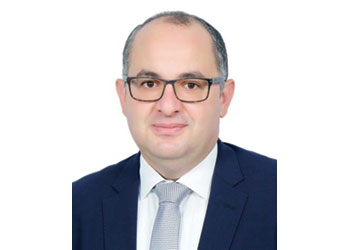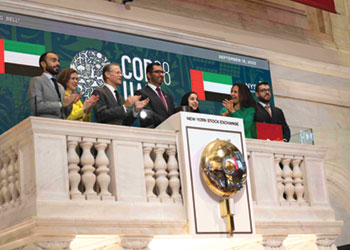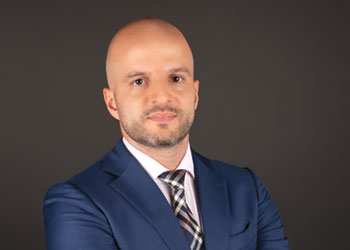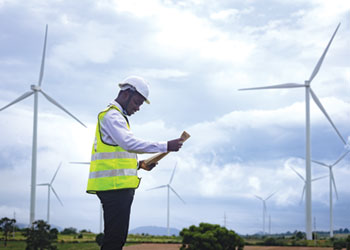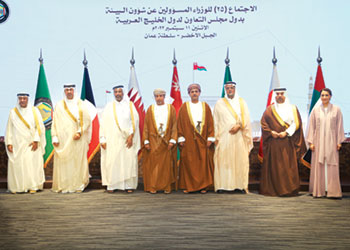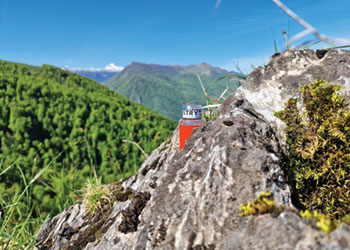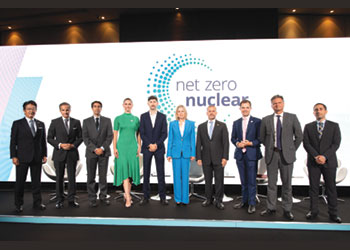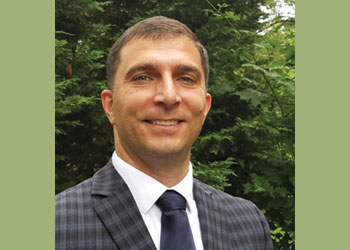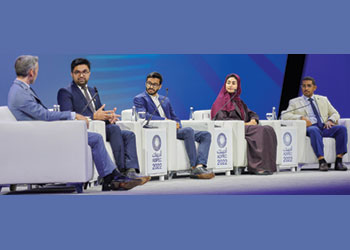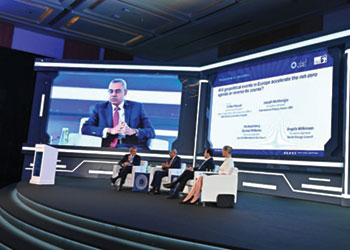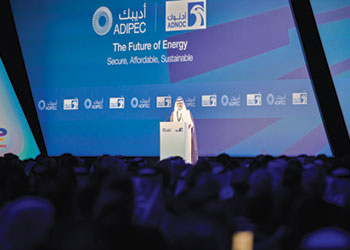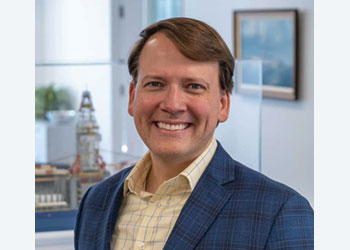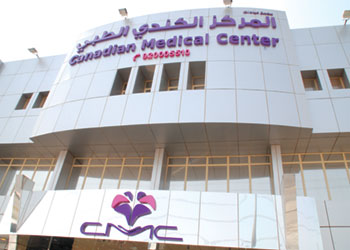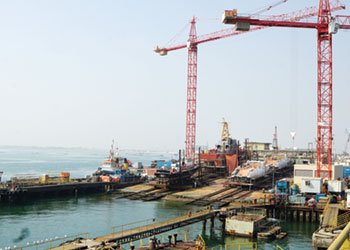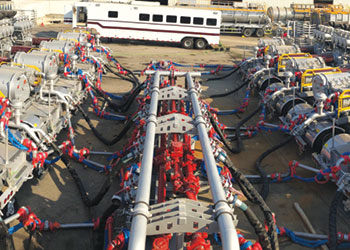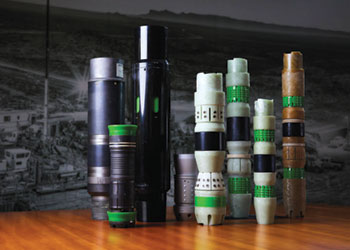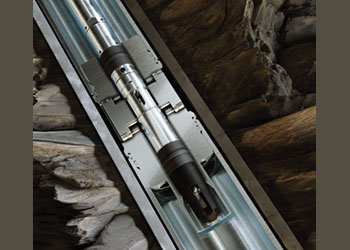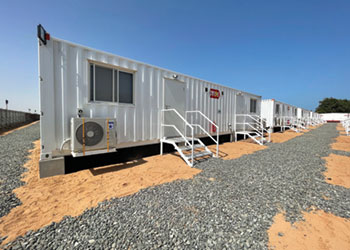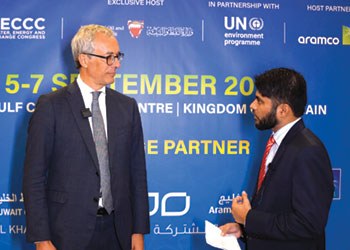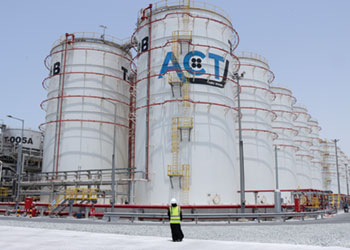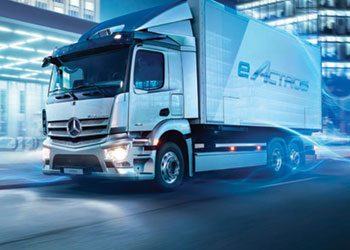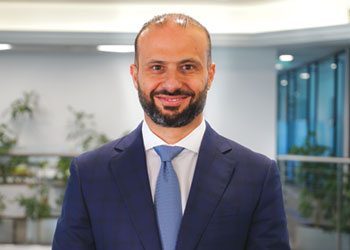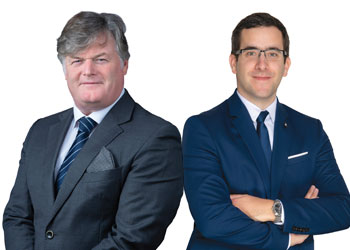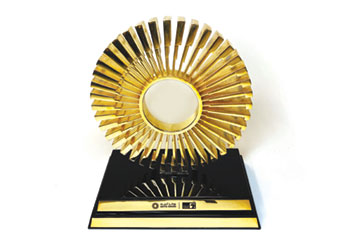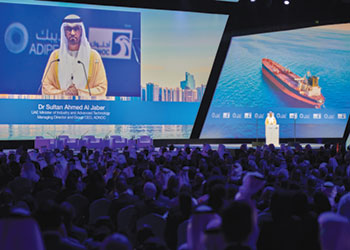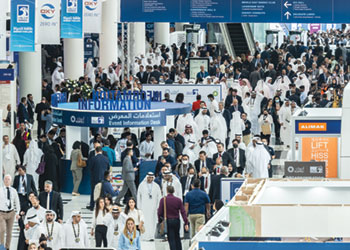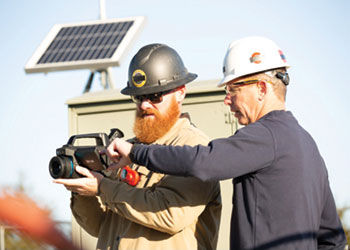
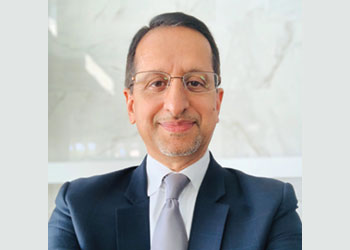 Muhammad ... committed to decarbonisation
Muhammad ... committed to decarbonisation
NORI will have labs focusing on produced water treatment, chemistry development and GHG emissions detection sensor technology development and implementation in KSA, Moin Muhammad from NESR tells OGN
The National Energy Services Reunited Corporation (NESR), an industry-leading provider of integrated energy services in the Mena region, has initiated several projects that reiterate its commitment to reducing emissions and improving sustainability in its operations.
A key component in this regard is its research and innovation centre, which will also be instrumental in driving growth for the company in the unconventional source segment.
In an exclusive interview, Moin Muhammad, NESR Vice-President - Chemicals, Water and Technology Center, tells OGN energy magazine of the company’s investment in research and development and human resource.
• What practical measures have you taken related to decarbonisation at NESR?
 |
NORI at Dhahran Techno Valley ... leading in R&D |
NESR has implemented several projects to decarbonise its operations. This includes installation of solar panels at several NESR sites, such as the NESR Oilfield Research and Innovation Centre (NORI) in Dhahran Techno Valley (DTV).
We estimate that 30 per cent of NORI’s power will come from renewable solar energy.
NESR has also introduced solar powered based light towers for the 24/7 field operations.
Additionally, NESR is using an innovative approach to reduce its carbon footprint by 70 per cent and water waste by more than 90 per cent for manufacturing oilfield brine at its plant.
The feed for this plant is unusable brackish or produced water, and a combination of selective ion exchange and high recovery reverse osmosis (RO) used to manufacture oilfield brine of desired specification.
This plant is operational in one of the countries where NESR operates and we are committed to making this the standard for brine manufacturing, and retiring the traditional brine making process.
Both the abovementioned initiatives required significant capital investment and demonstrates NESR’s commitment towards environmental protection and sustainability. These initiative are aligned with the KSA Vision 2030.
• What role will NORI play to help you achieve your decarbonisation targets?
 |
NESR takes in 60 trainees every year |
One of the focus areas at NORI is environment and sustainability and this includes decarbonisation.
NORI will have labs focusing on produced water treatment, chemistry development and greenhouse gas (GHG) emissions (methane) detection sensor technology development and implementation in KSA.
We have active projects in produced water treatment and mineral recovery, and mineralisation of CO2 in fresh and saline water (produced water).
These projects have the potential to utilise the CO2 to make valuable minerals and in turn treat produced water to a reuse level within the industry, and potentially for agriculture supporting the Saudi Green Initiative (SGI).
Furthermore, thermal harvesting from flowing well fluids (oil, gas and water) and other sources of waste heat from industrial operations can generate power with zero CO2 emissions.
NORI will work with NESR partner company ICE Thermal Harvesting to further optimise this heat-capture technology for the KSA market.
Finally, we have established a state-of-the-art rock lab at NORI. This lab will provide the subsurface characterisation of potential CO2 sequestration sites, a key requirement for the selection of saline aquifer for CO2 storage.
Meanwhile, other labs housed at NORI include a Chemistry Development lab; Environment and Sustainability labs for produced water treatment, mineral recovery, CO2 mineralisation, sensor development, and water characterisation; and an Operational Intelligence lab.
All these labs being supported by 28 staff members.
• How is NESR integrating AI in operations?
AI is built into all NORI activities, and we will use it to fast-track NORI projects for field implementation.
The operational intelligence lab at NORI will use AI to improve the efficiency of NESR field operations, as well as unlock cloud-based computing capabilities in the realm of decarbonisation endeavours, such as GHG (methane) detection.
• Will NORI enable NESR to take on unconventional projects?
NORI labs are carefully selected to support the unconventional source discoveries of Aramco and the rest of the region.
One such sources is the globally-renowned and established reservoir of Jafurah. Aramco announced a strong commitment to its development in November of 2021. Several other NOCs in the region have also announced unconventional discoveries.
NORI’s rock, chemistry, water treatment and operational intelligence labs will have a direct impact in supporting NESR field operations in Jafurah.
The chemistry lab will develop the next-generation completion fluids, while the rock lab will provide in-Kingdom characterisation of unconventional cores to expedite the implementation of the results in the field.
Simultaneously, the water treatment lab will provide the ability to re-use the produced water from the oilfield for hydraulic fracturing operations, creating a much-needed water circularly economy in the Kingdom.
In summary, these labs will provide NESR field operations with technologies to enhance operational efficiency, improve overall recovery and reduce the use of valuable fresh water.
• Will the R&D centre be used only by NESR or is it open to other industry players?
NORI will be open to NESR partners since the ‘Open Platform to Innovation’ is NESR’s strategy for technology development.
• How is NESR’s student exchange programme with King Fahd University of Petroleum and Minerals (KFUPM) progressing? What other training programmes do you have for locals?
NESR has onboarded a total of 10 KFUPM graduates as trainees/interns. We recently welcomed two graduates and the remaining graduates will join NESR after they fulfill their graduation requirements.
In the past two years, NESR has provided training to approximately 320 students across various training institutions, such as Saudi Arabian Drilling Academy (SADA), Saudi Petroleum Services Polytechnic (SPSS), and LNA.
We have plans to expand our collaboration with more training institutes and increase our yearly intake. Our facility also opens its doors to cooperative (coop) students, accommodating about 20-30 students each year.
Moreover, NESR is committed to sponsoring young and promising employees pursuing master's degrees in their respective fields. This initiative began with two individuals.
Under our Tamheer programme, around 50 trainee employees have successfully completed their training at NESR. We continue to onboard 4-6 new trainees every month under this programme. In summary, NESR's annual trainee intake capacity stands at approximately 60 interns.
• Where are these graduates trained?
Training is both local and abroad. The training overseas is at NESR partner facilities in the US, Canada, Netherland, Australia, and the UK. Some of the training is also done at US and European universities.
• Is there a quota for women?
At NESR, we are staunch proponents of equal employment opportunity, and we make our hiring decisions based on merit. We actively seek out and welcome talented female candidates into our workforce.
As of now, 50 per cent of NORI staff comprise females. While there is no written quota in place, we are committed to maintaining and even surpassing this figure in the future.
By Abdulaziz Khattak



















































































